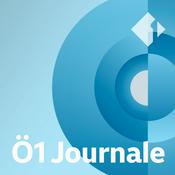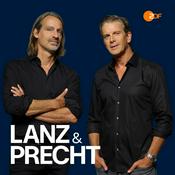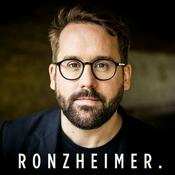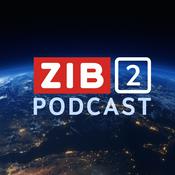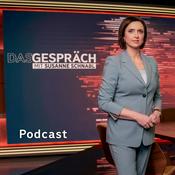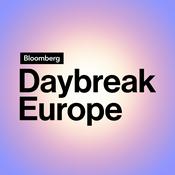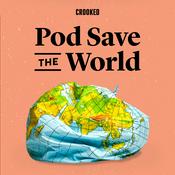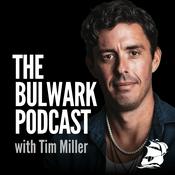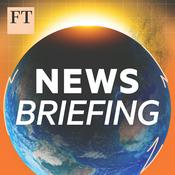374 Episoden
- In early January street protests in Iran turned deadly - thousands were killed by Iranian forces. What started as a demonstration about economic conditions had turned into demands for regime change. President Trump said he would come to the aid of protesters. But so far he hasn’t. He’s amassed a US armada in the Gulf. And last Friday talks were held in Oman between American and Iranian officials about reducing Iran’s nuclear capacity. There’s been no agreement yet but more talks are expected. David Aaronovitch asks his guests what could happen next ? And how vulnerable the Iranian regime is, both inside the country and to a potential US attack?
Guests:
Kasra Naji,Special Correspondent, BBC Persian
Arash Azizi, Writer and lecturer, Yale University
Dr Burcu Ozcelik, Senior Research Fellow for Middle East Security at the Royal United Services Institute
Dr Sanam Vakil, Director of the Middle East programme, Chatham House
Presenter: David Aaronovitch
Producers: Caroline Bayley, Emma Close
Production Coordinator: Maria Ogundele
Sound Engineer: James Beard
Editor: Richard Vadon - Following the dramatic capture of the President of Venezuela and his wife by US special forces on January 3rd, The Briefing Room asks what’s next for Venezuela? Nicolas Maduro and Cilia Flores have been indicted on drug trafficking and weapons charges in a New York court while in Venezuela the deputy president, Delcy Rodriguez has been sworn in as the country’s interim president. Meanwhile Donald Trump says he is in charge of Venezuela. David Aaronovitch and a panel of Latin American experts discuss who will actually govern Venezuela, what’s going to happen with the oil industry and what the implications are for the rest of the region.
GUESTS
Hal Hodson, Americas editor, The Economist
Christopher Sabatini, Senior Research Fellow for Latin America at Chatham House
Vanda Felbab-Brown Senior Fellow Foreign Policy, Brookings Institution
Presenter: David Aaronovitch
Producers: Caroline Bayley and Kirsteen Knight
Production Co-ordinator: Maria Ogundele
Sound Engineer: James Beard
Editor: Richard Vadon - As both the year and the current series of The Briefing Room draw to a close, Europe and much of the world have been digesting a lengthy document outlining the Trump administration’s view of foreign policy. The National Security Strategy covers much of the globe but extra special vitriol was reserved for Europe with dire warnings that the continent is facing “civilisational erasure” partly due to immigration. At the same time the growing influence of “patriotic European parties” (those on the far right) is welcomed. But there’s more - the US wants to dominate the “Western Hemisphere” - the Americas and countries on its doorstep. It wants more trade with Asia and China, as well as the Middle East. But there are notable absences -there's no talk of a significant threat from either Russia or China. David Aaronovitch and guests discuss what all this means and ask how worried we, in Europe, should be about the current US view of the world?
Guests:
Frank Gardner, BBC Security Correspondent
Shashank Joshi, Defence Editor, The Economist
Rebecca Lissner, Senior fellow for U.S. foreign policy at the Council on Foreign Relations and lecturer, Jackson School of Global Affair, Yale University.
Dr Christoph Heusgen, Former Chairman Munich Security Conference and former German Ambassador to United Nations
Presenter: David Aaronovitch
Producers: Caroline Bayley, Kirsteen Knight, Cordelia Hemming
Production Co-ordinator: Maria Ogundele
Sound engineer: Neil Churchill
Editor Richard Vadon - In a few days time resident doctors -who used to be known as junior doctors - will go on strike. Just before Christmas and with flu on the rise. This will be the 14th strike by the doctors’ union since March 2023. The ostensible reason is pay but coming up behind it as an issue for younger doctors is the question of their futures- they're very unhappy about their working conditions and their career paths. David Aaronovitch and guests discuss what's going on and ask what the problem is with the way we in Britain train our doctors?
Guests:
Hugh Pym, BBC Health Editor
Sir Andrew Goddard, Consultant Gastroenterologist
Professor Martin McKee, Professor of European Public Health, London School of Hygiene and Tropical Medicine
Mark Dayan, Policy Analyst, Nuffield Trust.
Presenter: David Aaronovitch
Producers: Caroline Bayley, Kirsteen Knight, Cordelia Hemming
Production Co-ordinator: Maria Ogundele
Sound Engineers: Michael Regaard, Gareth Jones
Editor: Richard Vadon - In her budget the Chancellor increased the state pension by 4.8 % in line with the government's triple lock formula. It was good news for pensioners but is it good news for the young? A constant background to spending and economic decisions for well over a decade now has been an argument about generational injustice. That the young are getting poorer. David Aaronovitch and guests look at the facts and ask whether the old are robbing the young and if so what should be done about it?
Guests:
Bobby Duffy, Professor of Public Policy at King’s College, London
Sophie Hale, Principal Economist, Resolution Foundation
Xiaowei Xu, Senior Research Economist at the Institute for Fiscal Studies
Jane Falkingham Professor of Demography, Southampton University
Presenter: David Aaronovitch
Producers: Caroline Bayley, Cordelia Hemming, Kirsteen Knight
Production Co-ordinator: Maria Ogundele
Sound Engineer: James Beard
Editor: Richard Vadon
Weitere Nachrichten Podcasts
Trending Nachrichten Podcasts
Über The Briefing Room
David Aaronovitch and a panel of experts and insiders present in-depth explainers on big issues in the news
Podcast-WebsiteHöre The Briefing Room, Thema des Tages und viele andere Podcasts aus aller Welt mit der radio.at-App
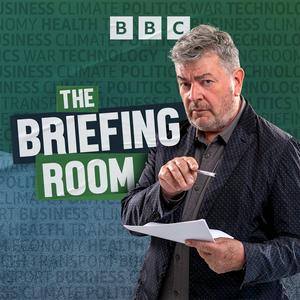
Hol dir die kostenlose radio.at App
- Sender und Podcasts favorisieren
- Streamen via Wifi oder Bluetooth
- Unterstützt Carplay & Android Auto
- viele weitere App Funktionen
Hol dir die kostenlose radio.at App
- Sender und Podcasts favorisieren
- Streamen via Wifi oder Bluetooth
- Unterstützt Carplay & Android Auto
- viele weitere App Funktionen


The Briefing Room
Code scannen,
App laden,
loshören.
App laden,
loshören.


